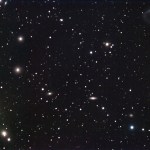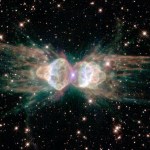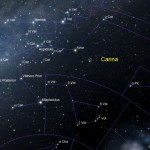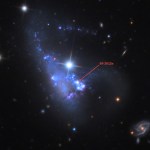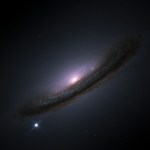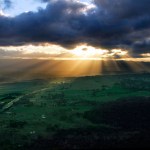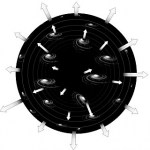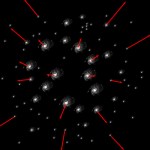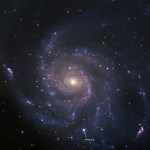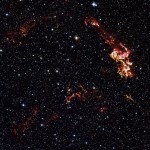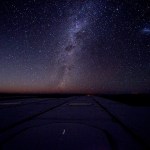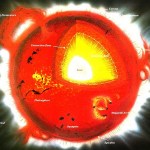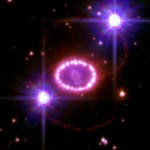Supernovae
"Everyone must leave something behind when he dies, my grandfather said. A child or a book or a painting or a house or a wall built or a pair of shoes made. Or a garden planted. Something your hand touched some way so your soul has somewhere to go when you die, and when people look at that tree or that flower you planted, you're there." -Ray Bradbury
Today is Memorial Day here in the United States, where we honor all the soldiers who have fought and fallen for our country. The peace and prosperity that I have enjoyed my entire life is because of a price paid, many times over, mostly by people…
"Truth is mighty and will prevail. There is nothing wrong with this, except that it ain't so." -Mark Twain
"It doesn't matter how beautiful your theory is, it doesn't matter how smart you are. If it doesn't agree with experiment, it's wrong." -Richard Feynman
Every day that you set forth in the world is a new opportunity to learn something about it. Every new observation that you make, every new test you perform, every novel encounter or piece of information you pick up is a new chance to be a scientist.
How so?
Image credit: Alan Chen.
You have a conception of how things work in this world…
"You cannot, in human experience, rush into the light. You have to go through the twilight into the broadening day before the noon comes and the full sun is upon the landscape." -Woodrow Wilson
Without a doubt, one of the most spectacular light shows of the cosmos happens when stars burn out -- reaching the end of their normal life cycle -- and die in a great supernova explosion. We've spoken in the past about the main ways that these stars die. Either a very massive star -- something more than ten times as massive as our Sun -- reaches the end of its nuclear fuel, and its core collapses,…
"When I had satisfied myself that no star of that kind had ever shone before, I was led into such perplexity by the unbelievability of the thing that I began to doubt the faith of my own eyes." -Tycho Brahe
When stars reach the end of their lives, there are many possible fates that they can have. Among the most spectacular, however, are stars that end their lives by going supernova, where a single star can outshine even an entire galaxy for a brief moment in time.
Image credit: SN 2006gy, X-ray by NASA / CXC, Nathan Smith, Weidong Li et al., IR by PAIRITEL / Lick / U.C. Berkeley / J.Bloom,…
"Not explaining science seems to me perverse. When you're in love, you want to tell the world." -Carl Sagan
Nothing lasts forever in this Universe, not even the seemingly timeless stars in the sky. At any moment, any one of the brilliant, twinkling points of light from across the galaxy could run out of fuel, ending its life as we know it. It's happened a number of times before in recorded history, and will no doubt happen again. With a typical supernova rate of one per galaxy per century, we've got a number of nearby potential candidates for what the next supernova to occur in the Milky Way…
"The diversity of the phenomena of nature is so great, and the treasures hidden in the heavens so rich, precisely in order that the human mind shall never be lacking in fresh nourishment." -Johannes Kepler
So said the man who, in 1604, discovered the supernova that was the last to be seen, visually, within our own galaxy. Although it's likely that two others occurred subsequently, they were not visible to human eyes, and only with powerful telescopes were their remnants discovered.
But earlier this week, the first supernova of the year was discovered, in a galaxy 25 million light years away,…
"When I had satisfied myself that no star of that kind had ever shone before, I was led into such perplexity by the unbelievability of the thing that I began to doubt the faith of my own eyes." -Tycho Brahe
When we look out at galaxies throughout the Universe, we find that every so often -- about once per century -- a bright star flares up so brightly that it can, for a brief amount of time, outshine the entire rest of the galaxy!
Image credit: SN 1994D, High-Z Supernova Search Team, HST, NASA.
What's going on, of course, is not that a star is brightening, but that the very atoms composing…
"Nothing leads the scientist so astray as a premature truth." -Jean Rostand
One of the most awesome events, literally, that happens in this Universe is when stars -- giant nuclear furnaces like our Sun -- die in the most energetic way possible: a supernova.
Video credit: Max-Planck-Institut für Astronomie (Ors Hunor Detre, Oliver Krause), via YouTube.
Every star that ever lived gets two chances to end their lives in this most spectacular of fashions. The hottest, bluest, most massive stars that are born burn through their nuclear fuel incredibly rapidly, accumulating a core of heavy metals…
"They credited us with the birth of that sort of heavy metal thing. Well, if that's the case, there should be an immediate abortion." -Ginger Baker
As hard as it may be to believe, take a look outside. I don't mean a glance, I mean to take a real look. At all the things there are to see -- the rocks, trees, mountains, skies, clouds, Sun, water, and everything alive -- all of it.
Image credit: Fir0002/Flagstaffotos, under the GFDL.
Now ask yourself, "what's it made of?"
At a fundamental level -- like everything else you know of -- everything on Earth is made of atoms. Oxygen, Hydrogen,…
"The only reason for time is so that everything doesn't happen at once." -Albert Einstein
Now that you know how many galaxies are in our expanding Universe, you might be wondering about their speeds.
After all, since the Universe is expanding, that means that the farther away a galaxy is from us, the faster it's speeding away from us.
Graph credit: Michael Rowan-Robinson.
What's more than that, since the expansion itself is accelerating, galaxies speed away from us ever faster as time progresses.
It should come as no surprise, then, that galaxies that we see moving away from us at high…
"Deep into that darkness peering, long I stood there, wondering, fearing, doubting, dreaming dreams no mortal ever dared to dream before." -Edgar Allen Poe
Earlier this week, the Nobel Prize in Physics was announced for the discovery that the Universe is not only expanding,
but that this expansion is accelerating!
What does an accelerated expansion physically mean?
If all you had in the Universe was some initial expansion and the mutual gravitational attraction of everything in it, you'd expect that as an object got farther and farther away from you, over time, its apparent motion away from…
Some say the world will end in fire,
Some say in ice.
From what I've tasted of desire
I hold with those who favor fire.
But if it had to perish twice,
I think I know enough of hate
To say that for destruction ice
Is also great
And would suffice. -Robert Frost
Ever since the discovery of the radiation glow left over from the initial hot, dense state of the Universe -- the cosmic microwave background -- the Big Bang has proven to be the best description of the early Universe.
Image credit: Stephen van Vuuren.
This hot and dense initial state has, for the past 14 billion years, been expanding…
"The first principle is that you must not fool yourself--and you are the easiest person to fool. So you have to be very careful about that. After you've not fooled yourself, it's easy not to fool other scientists. You just have to be honest in a conventional way after that." -Richard Feynman
Last week, a collaboration of 160 scientists working in Italy wrote a paper claiming that their experiment shows neutrinos traveling faster than the speed of light. Although I wrote up some initial thoughts on the matter, and there are plenty of other excellent takes, we're ready to go into even deeper…
"After all, the universe required ten billion years of evolution before life was even possible; the evolution of the stars and the evolving of new chemical elements in the nuclear furnaces of the stars were indispensable prerequisites for the generation of life." -John Polkinghorne
There are close to a whopping 1028 atoms in your body. And while just over half of them are hydrogen atoms, all the rest of them -- from Lithium to Uranium -- were made inside of stars, and ejected back out into the Universe, where, billions of years later, they made you.
Image credit: Ed Uthman.
In fact, a great…
Daughter, age 7: "Daddy, will the Earth always go around the Sun forever?"
Louis CK: "Well no, at some point the Sun is going to explode."
Daughter: (starts crying)
Louis CK: "Oh honey, this is not going to happen until you and everyone you know has been dead for a very long time."
Daughter: (continues crying)
As you all know, the closest supernova to us in the last quarter-century has recently gone off, currently shining in the faint, but relatively close Pinwheel Galaxy. (And starting tonight, early in the night, those of you with telescopes should go look for it!)
Image credit: Retrieved…
"After your death you will be what you were before your birth." -Arthur Schopenhauer
If only every star's death could be as glorious as a supernova, rocketing anywhere from thousands to millions of Earth-masses out of a star and into interstellar space. When we get one in our galaxy, like we do every few hundred years, the view from Earth can be spectacular.
Video Credit: ESA / Hubble.
The Crab Nebula, above, sprung from a supernova nearly a thousand years ago, in 1054. And while that supernova, and a handful of others since, have been visible from Earth with nothing more than the naked eye…
"Where there is an observatory and a telescope, we expect that any eyes will see new worlds at once." -Henry David Thoreau
The night sky is our greatest glimpse of what lies out there, beyond our own world, in the expanse of space we know as our Universe.
Image credit: European Southern Observatory.
With our naked eyes, we are able to see a few thousand stars, the Moon, five planets, the Milky Way and a few other nebulous "clouds" or "fuzzballs." And with just our naked eyes alone, we could learn some remarkable things about the Universe, including the basic structure of our Solar System…
"When I had satisfied myself that no star of that kind had ever shone before, I was led into such perplexity by the unbelievability of the thing that I began to doubt the faith of my own eyes." -Tycho Brahe
Supernovae are the most spectacular death-knells of the largest stars in our Universe. Nearly all stars burn light elements into heavier ones, releasing energy through the incredible process of nuclear fusion.
But all stars eventually run out of this fuel. For our Sun, we've got about another 6 billion years left. But the more massive your star, the faster it burns through its fuel.…
When I had satisfied myself that no star of that kind had ever shone before, I was led into such perplexity by the unbelievability of the thing that I began to doubt the faith of my own eyes.
-Tycho Brahe
One of the great things that the Hubble Space Telescope has given us is a whole slew of images of supernovae and remnant of past supernovae, from recent ones like SN 1987a
to supernovae that are hundreds of years old, like Tycho Brahe's supernova from 1572. In fact, Hubble is so powerful that it actually found the companion star that resulted in the Supernova exploding in the first place!…
Follow humbly wherever and to whatever abyss Nature leads, or you shall learn nothing. -T.H. Huxley
We've spent a little bit of time talking about dark energy, including what we think of it, how we first discovered it, and how we knew that there wasn't just something out there blocking the light. It seems to be the latest abyss that Nature is leading us, so we needed to look beyond the type Ia supernova data and see what else the Universe was telling us.
Image credit: Don Dixon.
So what do we do? First off, we can try to measure how much matter is in the Universe independent of anything…

